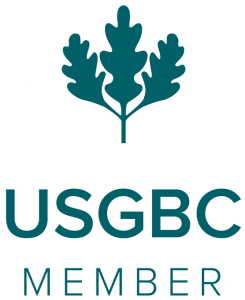A key stakeholder in the export-import process has welcomed the tabling of the Customs Act, 2020, declaring that the proposed law will position the Jamaica Customs Agency (JCA) as a major player in facilitating modern international trade.
Clive Coke, president of the Customs Brokers and Freight Forwarders Association of Jamaica (CBFFAJ), said that under the current 1941 legislation, the JCA focused primarily on revenue collection and the imposition of fines and penalties on those who violate the law.
“This new act will definitely speed up things and improve efficiency within Customs and for the importing and exporting public,” Coke said in a Gleaner interview.
The CBFFAJ head said that the proposed new statute would place Jamaica in a better position to improve its ranking in the Logistics Performance Index (LPI).
“With Jamaica having an interest in improving its ranking in the logistics index, many of these things are dependent on Jamaica Customs stepping up its game and embracing worldwide standards other than just seeing itself as an enforcer,” he said.
Jamaica ranked 113 out of 160 countries in the 2018 LPI.
Based on the World Bank’s collection of development indicators, the efficiency of Jamaica’s customs-clearance process was reported at 2.42 in 2018 on a scale of one to five, where one is low and five is high.
The LPI overall score reflects perceptions of a country’s logistics based on efficiency of customs-clearance process, quality of trade and transport-related infrastructure, ease of arranging competitively priced shipments, quality of logistics services, ability to track and trace consignments, and frequency with which shipments reach the consignee within the scheduled time.
Commenting on the role of customs brokers in the facilitation of trade, Coke said that for the first time, persons in Jamaica who ply their trade as brokers and freight forwarders have been recognised in the parent legislation.
He said that while regulations acknowledged the role of customs brokers, the current archaic law of 1941 did not recognise them.
On the vexed issue of individuals who pretend to be customs brokers in an effort to fleece unsuspecting members of the public, Coke said that the sector had been grappling with this problem for many years and had reported the matter to the authorities at the JCA.
He said that many persons presented themselves at the wharf under the pretence that they were licensed customs brokers.
Jamaica Customs has a gazetted list of authorised customs brokers.
DECEIVED BY COUNTERFEIT
Coke said that some members of the public had been deceived by persons who posed as customs brokers and lost significant sums of money.
“It is one of those things that the Shipping Association of Jamaica and the Customs Brokers and Freight Forwarders Association have been looking to actually operate the entire wharf area as a logistics park, so that we can have more control of these unauthorised persons who find themselves in the space,” he told The Gleaner.
The Customs Act, 2020, will repeal and replace the current 1941 law in order to modernise customs practices and procedures to effectively and efficiently facilitate trade.
The memorandum of objects and reasons states that the modernisation of customs practices is expected to bring benefits for the trading community and the JCA by improving customs-clearance and revenue-collection processes, simplifying procedures for businesses, and providing more efficient service delivery to the public.
Meanwhile, Coke said that customs brokers had experienced a fall-off in business of between 30 per cent and 40 per cent owing to the impact of COVID-19.
He said many members of the CBFFAJ in Montego Bay, who depend on the tourism sector for business, have had to reduce staff in the wake of low occupancy levels at the hotels.




